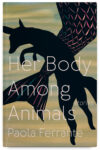This essay first appeared in the Full Stop Quarterly, Issue #8. To help us continue to pay our writers, please consider subscribing.
What would a modern fantasy novel look like? I don’t mean one set in contemporary America, but one not beholden to the past: free from the vague medievalism of George R. R. Martin’s A Song of Ice and Fire and untethered to folklore or ancient religious traditions, like the Anglo-Saxon myths of The Lord of the Rings, the Christianity of C. S. Lewis’s Narnia, or the Taoism of Ursula K. Le Guin’s Earthsea. Even fantasy series conceived in opposition to the norms of the genre, like Philip Pullman’s His Dark Materials, at most pull us up to the seventeenth- and eighteenth-century texts of Milton and Blake and into a steampunk-inflected Victoriana. Could we imagine a fantasy epic based instead on contemporary philosophy? On, say, existentialism? Turns out, that epic already exists. We just haven’t noticed it yet.
Lloyd Alexander’s five-volume children’s fantasy series The Chronicles of Prydain, published between 1964 and 1968, at first seems like just the kind of old-fashioned fantasy series described above. A medieval world? Check. Based on myth? Check—in this case, the Welsh myths collected in The Mabinogion. Corresponding closely to the model set up by Tolkien ten years earlier, the series tells the story of Taran Assistant Pig-Keeper and his friends, who grapple with steadily escalating encounters with servants of the Death-Lord Arawn that culminate in a last battle against Arawn himself. Taran ultimately vanquishes the Death-Lord and becomes High King of Prydain.
Pretty familiar. Yet Lloyd Alexander was deeply influenced by existentialism, and even played a part in shaping how we understand it. That connection—buried, forgotten, scarcely ever acknowledged by commentators—can make us reconsider not simply The Prydain Chronicles, but the whole genre of epic fantasy. Maybe there is another model for fantasy, one that does not simply eschew the Christian framework established by Tolkien and Lewis that so defines the genre, but complicates it, turning the focus away from destiny and back to moral choice, to human agency.
At the end of The High King, the final volume of Alexander’s series, Taran faces a stark choice. He has returned in triumph to his childhood home, and learned that he, his companions, and his bride-to-be will travel to the Summer Country, a land of eternal life and peace. This is the traditional reward for heroism in epic fantasy, from Tolkien’s Undying Lands and C. S. Lewis’s Aslan’s country onward. Yet Taran’s sleep is troubled by dreams, and when he wakes he resolves not to go to the Summer Country. He chooses to remain alone, without his intended bride, and embrace his inevitable death in order to attempt to fulfill the promises he’s made over the course of the novel to rebuild war-torn Prydain, even though his “efforts may well go unrewarded, unsung, forgotten.” Taran has found himself in a paradigmatic dilemma,
confronted by two very different modes of action; the one concrete, immediate, but directed towards only one individual; and the other an action addressed to an end infinitely greater, a national collectivity, but for that very reason ambiguous—and it might be frustrated on the way. At the same time, he was hesitating between two kinds of morality; on the one side the morality of sympathy, of personal devotion and, on the other side, a morality of wider scope but of more debatable validity. He had to choose between those two.
Taran can live eternally and devote himself to his love, or forsake that love, accept death, and choose the more ambiguous “morality of wider scope.” While the choice is eventually softened after his fiancé Eilonwy chooses to stay with him, his initial decision is quite surprising, setting the novel apart from most other works of epic fantasy.
But the passage quoted above is actually not written about the Prydain Chronicles. It’s by Jean-Paul Sartre, from his lecture “Existentialism is a Humanism.” Here Sartre is explaining the idea of existentialist choice through the anecdote of a man choosing between caring for his aged mother or fleeing France to try to join up with the Free French Army during World War II. It only sounds like Sartre was talking about Alexander’s novel.
And that’s because Alexander’s novel was talking about Sartre. While most accounts of Alexander’s life treat it as at most a footnote, Alexander was the first person to translate Sartre’s novel Nausea and his collection The Wall and Other Stories into English. His version of Nausea, published by New Directions, was reviewed in 1949 in the New York Times—negatively, in reference both to Sartre’s work and the quality of its translation—by none other than Vladimir Nabokov. But despite Nabokov’s dismissal, Alexander’s translations are still in print. The dog-eared copy in the hands of a disaffected high schooler, the battered edition picked up in a used book store and displayed prominently on a table in a coffee shop—those are Alexander’s renditions. If you’ve read these books, you’ve most likely read his words. Serving in Army intelligence during World War II, Alexander was stationed first in Wales and then in Paris, where he lived between 1945 and mid-1946. There he took classes at the Sorbonne, visited with Gertrude Stein, befriended and translated the Surrealist poet Paul Éluard, and discovered the works of Sartre, only then coming to international prominence. Indeed, the future fantasy writer was in Paris when Sartre’s lecture quoted above was given and published.
Despite Alexander’s remarkable role in the history of existentialism, oddly no one has made any connection between that philosophy and his own work. This makes sense in some ways, as the disgust expressed in Sartre’s Nausea is a far cry from Alexander’s gentle humanism. Likewise, Sartre in his 1938 essay “Aminadab: Or the Fantastic Considered as a Language” disdains the kind of fantasy literature that Alexander would eventually write, commenting that the genre needs to evolve past the “useless, time-worn conventions” of “fairies, genies and hobgoblins.” These conventions and these fairies are precisely what interests Alexander.
Yet the influence of existentialism can account for exactly what sets Alexander’s work apart from other fantasy series. Take Taran Wanderer, often considered the most distinctive volume of the series, as in a recent appraisal by Vox. While filtered through the genre conventions of fantasy, the novel emerges as an illustration of Sartre’s famous idea that “existence precedes essence.” Sartre argues against the notion that there is a fixed and given “human nature.” Rather, each individual defines his/her own nature through his/her actions: “Thus, there is no human nature, because there is no God to have a conception of it. Man simply is. . . . Man is nothing else but that which he makes of himself.”
In Taran Wanderer these ideas get expressed through the idea of nobility. Taran, who does not know who his parents are, longs to be born of noble blood. In other words, he longs to have his nobility or heroism be his essence, inherent to him, like, say, Harry Potter, destined since toddlerhood to be the “Chosen One.” But he learns over the course of the novel that these qualities are not linked to blood and thus are not essential: “As for my parentage . . . it makes little difference. True kinship has naught to do with blood ties.” Rather, heroism is defined through choices and actions, “not in my birth, but in myself,” in Taran’s words. At the end of the novel, after looking into a pool of water that he’s been seeking and seeing only his reflection, he states, “Now I know who I am; myself and none other. I am Taran.” Indeed, Taran’s parents are never revealed, often to the frustration of readers. His birth simply does not matter—only his choices do.
We might take this more democratic, anti-aristocratic notion of heroism in Alexander’s work as not particularly existentialist, were it not for the fact that Sartre uses the same metaphor of heroism to describe his ideas. Rejecting the idea that “people are born heroes,” Sartre instead declares that “the existentialist says that the coward makes himself cowardly, the hero makes himself heroic; and that there is always a possibility for the coward to give up cowardice and for the hero to stop being a hero.” In other words, the idea of being born noble, as Taran realizes, is absurd. He is, in Sartre’s words, “nothing else but the sum of his actions, nothing else but what his life is.”
Existentialism is thus above all a philosophy of free will. “There is no determinism—man is free, man is freedom,” Sartre writes. Yet epic fantasy seems quite different: It’s all about destiny, about the hero born to defeat evil, the battle foretold in the prophecies, etc., etc. And prophecies are quite important to Alexander’s work as well. Yet the end of The High King, and Taran’s choice to remain in Prydain, serves to salvage the idea of free will within the deterministic framework of the genre. Again and again on the final pages of the book, Alexander insists on the primacy of choice over destiny. After being informed of his impending trip to the Summer Country, Taran dreams of Orddu, Orgoch, and Orwen, characters from two previous volumes of the series who are analogues for the Fates of Greek mythology, weaving on their loom the narratives of individual lives. Yet when they return, they emphasize the freedom of Taran’s choices: “It does come from our loom,” they say, “but it was really you who wove it.” As they insist, “The pattern is of your choosing and always was.” They thus answer a question that Taran poses in Taran Wanderer: “Have I indeed chosen my own pattern, or am I no more than a thread on her loom?” This answer is repeated almost to excess: Taran declares, “The strands of life are not woven by three hags or even by three beautiful damsels. The pattern indeed was mine.” Alexander’s tone throughout the series is so warm and gentle, unlike C. S. Lewis’s chidings, that these moments don’t come across as didactic or programmatic, but they fit, subtly yet unmistakably, with Sartre’s philosophy.
While the Prydain Chronicles as a whole still invoke the language of destiny, at its conclusion Alexander insists on the primacy of human choice over any design or plan. Even the Book of Three, the prophetic book that gives the first volume of the Chronicles its name, is revealed as what “could as well be called a book of ‘if’.” It is not a fixed account of what will be but a tracing of various possible paths still reliant on the choices of individuals. As Taran’s father figure Dallben concludes, reiterating this point, “For the deeds of a man, not the words of a prophecy, are what shape his destiny.” By the end of Alexander’s series, the reader, like Taran, is made to realize that no destinies are given—as in Sartre’s philosophy, human lives are defined by the choices made during them.
In emphasizing free choice, Alexander moves away from the religious frameworks that are so common in fantasy. Religion, and Christian religion specifically, involves a strong degree of determinism, both through the idea of a fixed human essence (original sin, a soul, or otherwise) or a clear eschatology, a conception of death or endings. Implicitly or explicitly, these worldviews have frequently governed the genre of fantasy from C. S. Lewis and J. R. R. Tolkien onward. Indeed, the conclusions of the Chronicles of Narnia and The Lord of the Rings bring these Christian models most clearly to the fore. The Last Battle, the final volume of Narnia, published only a decade before The High King, provides the clearest contrast. Whereas Taran turns away from a heavenly, eternal future, C. S. Lewis consistently denigrates the present world in relation to the glories of Aslan’s country—a stand-in for heaven. To Lewis, “our own world, England and all, is only a shadow or copy of something in Aslan’s real world.” The sequence ends with Lewis minimizing all that he has written: “All their life in this world and all their adventures in Narnia has only been the cover and the title page: now at last they were beginning Chapter One of the Great Story.” Heaven is what matters; Narnia and England are nothing but an insignificant prologue, and the fact that all the main characters have been unceremoniously killed off in a train accident is treated as a reason for happiness.
The Lord of the Rings, published at almost the same time as Narnia, is far less doctrinarian and allegorical, yet it likewise sets up the Undying Lands to which Frodo, Bilbo, Gandalf, and the elves ultimately depart as a partial analogue to heaven. Both Narnia and Middle-Earth thus come to resemble John Bunyan’s allegorical Pilgrim’s Progress, in which the main character Christian must defeat enemies like the Giant Despair before reaching the Celestial City. Those like Frodo who have suffered in heroically carrying the ring are rewarded with, if not quite immortality, then at least a passage to a world apart from Middle-Earth where all their “wounds and weariness are healed.” The character of Arwen does choose to stay in Middle-Earth and die in order to marry Aragorn, making her equivalent to Eilonwy in The Prydain Chronicles. Yet there is no analogue for Taran, no one who otherwise even considers the possibility of not going to the Undying Lands.
Alexander thus does not so much reject the Christian model of Lewis and Tolkien as turn it on its head. The heavenly Summer Country still exists, after all. But Taran chooses not to journey there. As Dallben asks, “Will you dwell in sorrow instead of happiness? Will you refuse not only joy and love but neverending life?” Taran embraces the mortal world, this world, choosing to die where he has lived, rather than look forward to the promises of heaven. We might perhaps see Taran as like Aslan, the Christ-figure lion in Narnia, deciding to die so that others may benefit, and thus the books participating in a Christian ethic of sacrifice. But the language of the ending of The High King is never one of sacrifice, but always one of free choice. And that choice is inextricably linked to the finality of death; as Sartre writes in Nausea—and, again, this is Alexander’s translation—“Something is beginning in order to end: adventure does not let itself be drawn out; it only makes sense when dead.” Death provides the ultimate finality—it retroactively brings meaning and order to life. In choosing death over eternity, this world over heaven, Taran writes his own final chapter; he is reliant not on destiny, not on the judgment of God or Aslan on who gets to go to heaven, but only on himself.
The emphasis on freedom, choice, and death against divine determinism, rooted in Sartre’s existentialism, ultimately makes the Prydain Chronicles a better alternative to Christian-inflected fantasy than Philip Pullman’s more overtly anti-Christian His Dark Materials series. Like Alexander, Pullman seeks to emphasize “life in this world” over heaven. But Pullman, despite literally killing off God and rejecting the doctrine of Original Sin, ultimately opposes Christian symbols and models so vociferously that the novels wind up being defined by the system they supposedly reject. More importantly, the ending to the entire series fails to provide a moment of free choice. At the conclusion to The Amber Spyglass, Pullman’s protagonists Lyra and Will seem confronted with a devastating dilemma. All but one of the windows between worlds that Will has opened need to be closed. They can leave the window between their respective worlds open, allowing them to stay together as lovers. Or they can leave open a window to the realm of the dead, so that all of the ghosts can escape and happily be dissolved into the fabric of the universe. In other words, they face a choice between their own happiness and the greater good, similar to that which Taran faces.
And yet the choice given to Lyra and Will, unlike the ending of The High King, is not really a choice. While Lloyd Alexander clearly sides with Taran’s decision to stay and die in Prydain, it’s treated as a legitimate question. After all, all of Taran’s friends other than Eilonwy do journey to the Summer Country. But for Pullman there’s such an obvious answer to Lyra and Will’s choice—either their happiness or the happiness of every person who has ever lived or ever will live—that they never even have to consider it. Lyra and Will are sad and angry that they can’t be together, but they know that they must sacrifice their own shared future. Pullman claims to privilege choice—“whatever I do, I will choose it, no one else,” as Will states—but the novel ultimately does not provide a fair one, instead resorting to a Christian notion of sacrifice. Likewise, the Harry Potter series, while largely avoiding an explicit Christianity, similarly embraces the idea of sacrifice, with Harry unswervingly deciding to give up his own life to destroy Voldemort. He lives, but death is in no way final in Rowling’s world—the dead persist as ghosts or return in the limbo-like space in which the half-dead Harry meets Dumbledore. The finality that Sartre sees in death—and that gets expressed in The Prydain Chronicles—is absent from both Pullman’s and Rowling’s epics. Far more modestly and quietly than these others, Alexander offers a real existentialist alternative to the Christian-influenced models that, despite Pullman’s and Rowling’s best efforts, still define His Dark Materials and Harry Potter.
If we want to see the enduring importance of Alexander’s existentialist-inflected brand of fantasy, we need look no further than the The Last Jedi. The Star Wars saga, at least under George Lucas’s supervision, is deeply reliant on notions of destiny and particularly of lineage: that “Skywalker blood” everyone talks about. And so Rey in the recent films is naturally, like Taran, obsessed with solving the mystery of her parentage. Yet as Rian Johnson seeks to move the franchise in a more inclusive direction, he jettisons this focus on kinship. Rey realizes in The Last Jedi that her parentage does not matter—like Taran, she is “no one.” This revelation is foreshadowed in a scene that strikingly echoes Taran Wanderer, as other commentators have noted. Gazing at a stone wall that she feels will reveal her parents, she is confronted instead only with a vision of her own face. As in Taran Wanderer, what matters is not her lineage, but herself. If The Last Jedi seems obsessed with throwing off the burden of the past, it’s precisely the importance of parentage and destiny that it seems most eager to jettison, just the values that Alexander questions.
On a broader level, appreciating the influence of existentialism on Alexander’s work might make us think of the whole genre of fantasy differently. Despite Sartre’s disdain for fantasy, perhaps existentialism is not such an ill-fitting model for it after all. Fantasy is concerned with providence and prophecy, and above all, of course, with magic and enchantment. Yet a surprising number of fantasy epics end with the loss of that magic, of the very thing that defines fantasy as a genre. With the defeat of the great evil enchanter—Arawn or Sauron—not only are the enchantments of evil vanquished, but, in the words of The High King, “All enchantments shall pass away, and men unaided guide their own destiny.” While the change in Tolkien’s work is not as stark, Gandalf still emphasizes that “The Third Age of the world is ended, and the new age is begun . . . For the time comes of the Dominion of Men, and the Elder Kindred shall fade or depart.” In other words, those creatures most associated with fantasy—elves and dwarves—cede the world to people like us. The pesky “fairies, genies and hobgoblins” that Sartre laments have disappeared. The worlds of Prydain and Middle-Earth come more to resemble, by the end of the sequences, our world.
The literary critic Georg Lukács argued that “the novel is the epic of a world that has been abandoned by god.” In other words, as opposed to the epic, the world of the novel is no longer defined by a clear and totalizing divine plan, a framework by which the events and histories of the world can make immediate sense. We might then call fantasy the epic of a world in the process of being abandoned by God. While epic fantasy with its warfare, magic, and prophecies strongly resembles, as its name implies, the epic and the romance, the genre often concludes with that sense of magic and divinity withdrawing or dissolving. Fantasy is often a genre of actual disenchantment. At times this disenchantment is not just implicitly but explicitly religious: Remember that Pullman’s novels culminate with the death of God. And yet, fantasy rarely reckons with the moral transformation wrought by that disenchantment—the fact that if magical beings and prophecies no longer occupy a central place in the world, there’s no longer a clear sense of providence or morality. Only Alexander, by ending his series on a true choice, tries to make sense of this new moral freedom.
Existentialism thus ultimately suits the world(s) of epic fantasy extremely well. For Sartre’s existentialism is a philosophy of secularization. Indeed, it’s a philosophy of “abandonment,” a word Sartre uses constantly. What can we do when the moral framework and worldview of religion has begun to recede? How are we going to construct a new model for morality? These are the questions that Sartre tries to answer. And those are questions that heroes of fantasy likewise confront—or should have to confront—at the end of the sequences. How is Taran going to be able to rule Prydain and accomplish the tasks he’s set out for himself? Without a clear embodiment of evil like Sauron and Voldemort—and thus a clear moral purpose in opposing them—how are we supposed to act? In ultimately shifting the focus away from sorcerers and enchanters, from heaven and divinity, and onto human beings and their world, Alexander’s series does not so much vanquish the world of magic as ground it in the basic moral choices that define our everyday lives, whether we live in Prydain, in occupied France, or in contemporary America.
Jesse Schotter is assistant professor of English and a faculty member in the Film Studies Program at the Ohio State University. He specializes in modernist literature and culture, film theory and media histories of the twentieth century. His book Hieroglyphic Modernisms: Writing and New Media in the Twentieth Century was recently published in the Critical Studies in Modernist Culture Series at Edinburgh University Press. His articles have been published in Genre, James Joyce Quarterly, and Literature/Film Quarterly.
This post may contain affiliate links.








